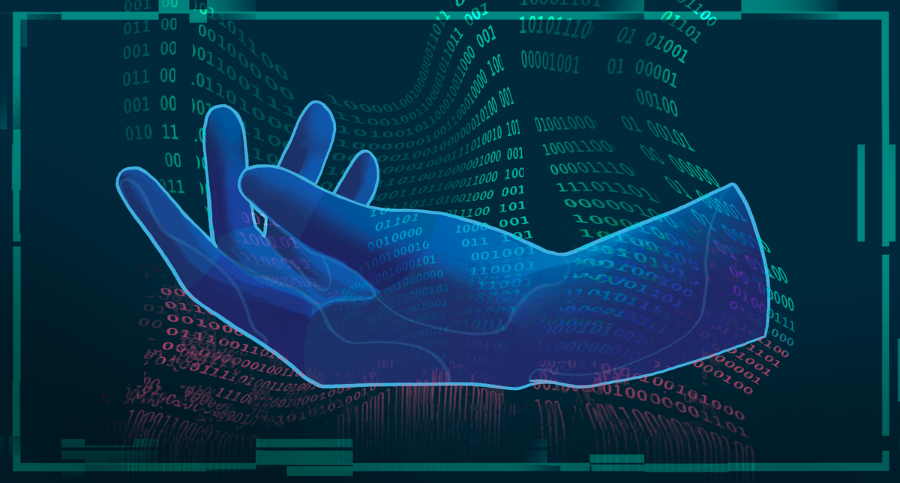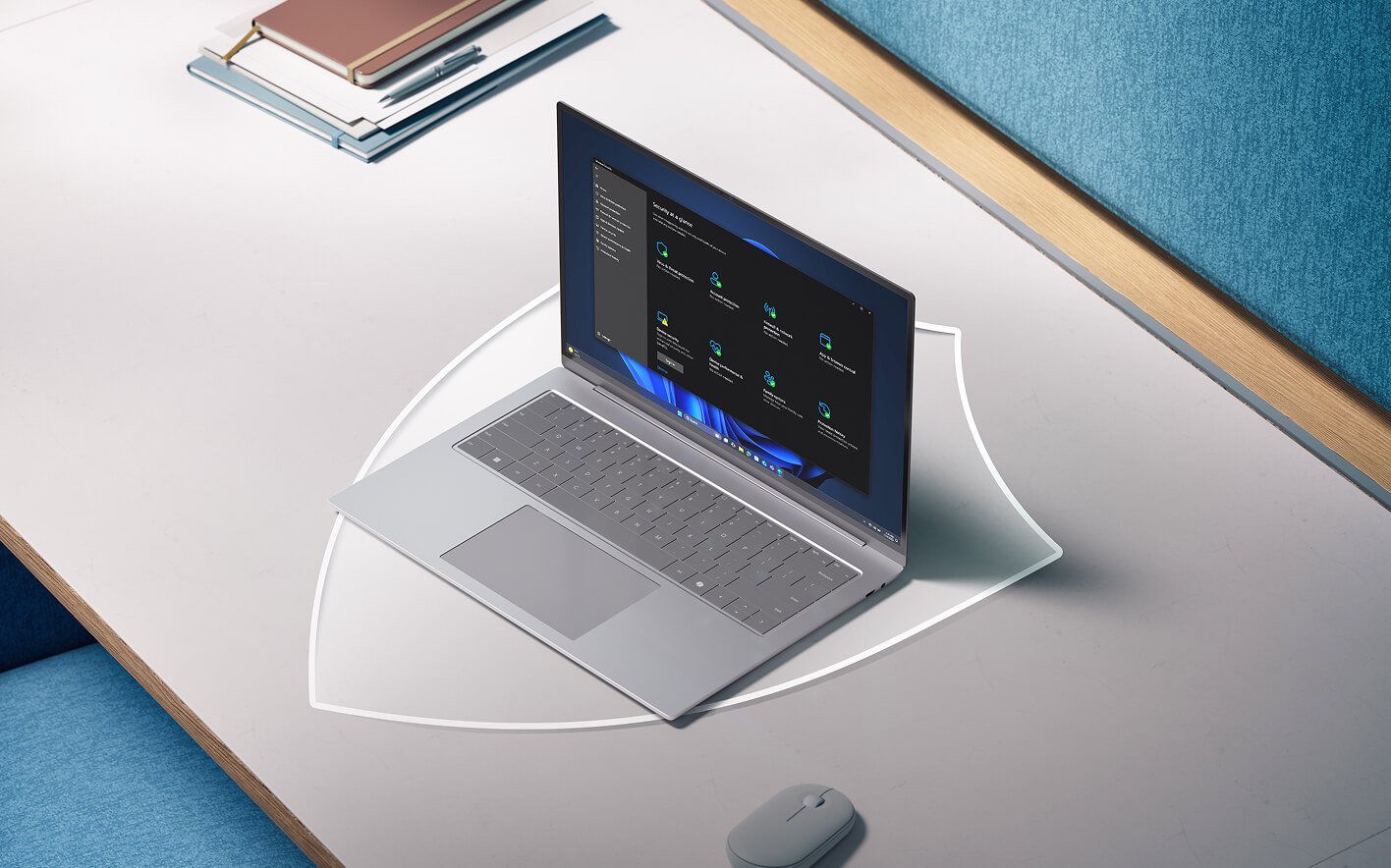Data Loss Prevention for Small Businesses: The Complete Guide
Small businesses today depend on data more than ever. Client records, payment information, financials, proprietary processes, and more. But with...
6 min read
 Adrian Ghira
:
Jul 31, 2020 2:43:42 PM
Adrian Ghira
:
Jul 31, 2020 2:43:42 PM

IT security policies are documented rules defining how organizations protect data, manage access, and ensure compliance. They establish employee responsibilities, guide incident response, and form the foundation for regulatory adherence across industries.
These formal documents establish rules for protecting organizational data and digital assets. They define acceptable behavior for employees, contractors, and third parties who access company systems. Security policies form your organization's backbone, specifying who can access what information, how sensitive data should be handled, and what steps to take when security incidents occur.
Every business needs documented security policies, regardless of size or industry. Without them, you face increased breach risk, compliance violations, and unclear accountability when problems arise. Organizations often work with cybersecurity services to develop tailored policies that address their specific security needs and regulatory requirements.
IT security policies are formal documents that establish rules for protecting organizational data and digital assets. They outline procedures for managing access, responding to threats, and maintaining compliance with regulatory requirements.
Think of them as your company's digital rulebook. They define acceptable behavior, assign responsibilities, and create accountability across your entire organization. These policies apply to everyone who accesses your systems, including employees, contractors, vendors, and partners.
Security policies typically build on three fundamental principles known as the CIA triad: confidentiality, integrity, and availability. Confidentiality ensures only authorized users access sensitive information. Integrity maintains data accuracy and prevents unauthorized changes. Availability guarantees legitimate users can access systems when needed.
The National Institute of Standards and Technology (NIST) recognizes three main policy categories. Program policies set high-level security direction and goals for the entire organization. Issue-specific policies address particular security concerns like password management or internet usage. System-specific policies define security configurations for individual systems or applications.
These documents work together to create a comprehensive security framework. They connect people, processes, and technology into a unified approach for preventing data breaches and security incidents.
Without documented security policies, businesses face increased breach risk, compliance violations, and potential legal liability. Policies provide the foundation for protecting valuable assets and maintaining customer trust.
The average data breach costs organizations $4.45 million. Healthcare organizations can face HIPAA penalties up to $1.5 million per violation category. Payment processors without proper PCI DSS policies risk losing their ability to process credit cards entirely.
Well-implemented IT security policies deliver measurable benefits:
An effective IT security policy includes clearly stated purpose and scope, defined responsibilities, realistic requirements, compliance alignment, and regular update mechanisms. These components ensure policies remain practical, enforceable, and relevant.
Every policy should build on the CIA triad: confidentiality, integrity, and availability. Confidentiality ensures only authorized users access sensitive information. Integrity maintains data accuracy and prevents unauthorized changes. Availability guarantees legitimate users can access systems when needed.
Your IT security policies must include:
Organizations should implement 10 core security policies covering access control, data protection, network security, incident response, and employee training. Each policy addresses specific security domains while functioning as part of an integrated framework.
The specific policies you need depend on your industry, size, and regulatory requirements. Healthcare organizations must prioritize HIPAA compliance, while financial institutions focus on PCI DSS and SOX. However, these 10 policies form a solid foundation:
1. Acceptable Use Policy: Defines appropriate use of organizational information, computing devices, and network resources. Establishes boundaries for internet usage, email communications, and software installation.
2. Access Control Policy: Manages user access to critical data and systems following the principle of least privilege. Covers authentication requirements, authorization levels, and access review procedures.
3. Password Management Policy: Outlines requirements for creating and protecting credentials. Specifies minimum length (12-16 characters), complexity standards, rotation schedules, and multi-factor authentication requirements.
4. Network Security Policy: Protects organizational networks against unauthorized access and attacks. Defines firewall configurations, network segmentation strategies, and monitoring procedures.
5. Data Management Policy: Governs collection, processing, storage, and deletion of organizational data. Specifies data classification levels, handling requirements, backup procedures, and retention schedules.
6. Remote Access Policy: Defines security requirements for accessing systems outside the corporate network. Covers approved VPN solutions, device security requirements, and authentication for remote connections.
7. Incident Response Policy: Guides organizational response to security incidents. Establishes procedures for detecting, reporting, escalating, and recovering from security events.
8. Vendor Management Policy: Governs third-party risk management activities. Establishes vendor security assessments, contractual requirements, and access management for external parties.
9. Removable Media Policy: Establishes rules for portable storage devices like USB drives. Specifies approved devices, encryption standards, and monitoring procedures for device connections.
10. Security Awareness and Training Policy: Ensures employees understand cybersecurity threats and best practices. Defines training schedules, required topics, and completion tracking.
Creating effective IT security policies requires five sequential steps: risk assessment, policy development, stakeholder approval, communication and training, and ongoing monitoring. This structured approach ensures policies address real risks and gain organizational buy-in.
Step 1: Conduct a Risk Assessment
Identify your most valuable assets, likely threats, and existing vulnerabilities. Start by cataloging critical systems and sensitive data. Use a risk matrix to prioritize concerns by likelihood and impact.
Timeline: 2-4 weeks for small organizations, 6-12 weeks for enterprises.
Step 2: Develop Draft Policies
Write clear, concise policy documents based on your risk assessment. Each policy should include purpose, scope, requirements, responsibilities, and enforcement procedures. Use templates from NIST or ISO 27001 as starting points.
Timeline: 1-2 weeks per policy.
Step 3: Secure Stakeholder Approval
Present draft policies to leadership, legal counsel, and affected departments for review. Executive support is critical for successful implementation.
Timeline: 2-4 weeks for review cycles.
Step 4: Communicate and Train
Roll out approved policies through multiple channels. Hold training sessions, distribute written materials, and require acknowledgment signatures. Explain the reasoning behind requirements, not just the rules.
Timeline: 4-8 weeks for initial rollout.
Step 5: Monitor and Update Regularly
Track policy compliance and measure effectiveness metrics. Review and update policies at least annually, or more frequently for rapidly changing areas.
Timeline: Ongoing, with formal reviews every 12 months.
Start with your highest-risk areas and expand coverage gradually. Partial implementation of critical policies beats perfect planning that never launches.
IT security policies demonstrate due diligence and establish controls required by major compliance frameworks including HIPAA, GDPR, PCI DSS, ISO 27001, and SOC 2. Documented policies provide audit evidence and reduce violation penalties.
Regulators expect organizations to have written security policies. During audits, examiners request policy documentation as their first evidence requirement. Many regulations explicitly mandate specific policies.
Key Compliance Requirements:
HIPAA (Healthcare): Requires policies for access controls, workforce security, security awareness training, and incident response. Penalties range from $100 to $1.5 million annually per violation category.
GDPR (European Data Protection): Mandates data protection policies, breach notification procedures, and data retention policies. Organizations must document legal bases for data processing.
PCI DSS (Payment Processing): Requires security policies for network security, access control, and monitoring. Non-compliance can result in monthly fines up to $100,000 plus loss of payment processing privileges.
ISO 27001 (Information Security): Demands comprehensive information security policies covering all ISMS aspects. Certification audits extensively review policy documentation.
SOC 2 (Service Organizations): Requires policies aligned with Trust Services Criteria covering security, availability, and confidentiality.
Industry-specific requirements add complexity. Financial services face additional regulations like SOX and GLBA. Manufacturing companies must comply with ITAR or EAR. Organizations operating internationally juggle multiple regulatory regimes simultaneously.
Strong policies reduce audit stress and penalty risks. When violations occur, documented policies with evidence of good-faith implementation efforts typically result in lower fines.
IT security policies should be as concise as possible while covering necessary requirements, typically ranging from 2-5 pages per policy. The length of IT security policies depends on scope and complexity, but brevity improves readability and compliance. Focus on essential requirements rather than comprehensive coverage of every scenario.
Small businesses absolutely need formal IT security policies, particularly if they handle customer data, accept payments, or operate in regulated industries. Small business IT security policies can be simpler than enterprise versions, but documented policies remain essential for compliance, cyber insurance, and customer trust.
Policies are high-level documents stating what must be done and why, standards specify how to implement policies through technical requirements, and procedures provide step-by-step instructions for specific tasks. This distinction between policies, standards, and procedures creates a documentation hierarchy.
Security policies should be formally reviewed at least annually, with more frequent reviews for rapidly changing areas like technology standards and threat response procedures. The frequency for reviewing security policies depends on your industry, regulatory requirements, and rate of organizational change.
Organizations without documented security policies face increased breach risk, automatic compliance audit failures, higher cyber insurance premiums or coverage denial, and potentially larger penalties when violations occur. The absence of documented IT security policies signals inadequate security posture to regulators, insurers, and business partners.
IT security policies protect your business by establishing clear rules for data protection, defining employee responsibilities, enabling regulatory compliance, and providing structured incident response. Without documented policies, organizations operate in constant reactive mode where every security decision becomes a negotiation and employees make inconsistent choices that create vulnerabilities.
Strong IT security policies provide guardrails that enable efficient, secure operations. Employees understand expectations, security teams focus on real threats rather than preventable errors, and your organization demonstrates due diligence to regulators, customers, and partners. Start with your highest-risk areas like access control, password management, and incident response, then expand coverage as resources allow.
The effort invested in comprehensive security policies pays dividends through reduced breach risk, faster incident response, improved compliance posture, and increased stakeholder confidence. In today's threat landscape, documented security policies aren't optional extras, they're business essentials. Need help developing IT security policies for your organization? Contact GAM Tech for a free consultation and discover how our managed IT services can protect your business.

Small businesses today depend on data more than ever. Client records, payment information, financials, proprietary processes, and more. But with...

Businesses today face a growing number of cyber threats. These threats can lead to data breaches and financial losses.